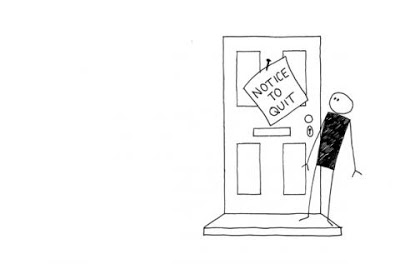
Decision Of A Court With Competent Jurisdiction – Meaning And Effect Of

“In this Constitution
unless it is otherwise expressly provided or the context otherwise requires-
“decision” means, in relation to a court, any determination of that court and
includes judgment; decree, order conviction, sentence or recommendation”.
unless it is otherwise expressly provided or the context otherwise requires-
“decision” means, in relation to a court, any determination of that court and
includes judgment; decree, order conviction, sentence or recommendation”.
- SECTION 318 (1) OF THE 1999
CONSTITUTION OF THE FEDERAL REPUBLIC OF NIGERIA (AS AMENDED).
It is trite that the
decision of a court of competent jurisdiction no matter its nature is absolute
and binding on all and sundry without question until such decision is legally
and legitimately set aside by a competent court of appellate jurisdiction. As
stated in Section 318 (1) above, the decision of a court varies from judgment
to decree, order, conviction, sentence and recommendation. The decision of a
court of competent jurisdiction could be either final or interim in nature.
decision of a court of competent jurisdiction no matter its nature is absolute
and binding on all and sundry without question until such decision is legally
and legitimately set aside by a competent court of appellate jurisdiction. As
stated in Section 318 (1) above, the decision of a court varies from judgment
to decree, order, conviction, sentence and recommendation. The decision of a
court of competent jurisdiction could be either final or interim in nature.
A final decision of a
court as the name connotes is final and permanent with respect to that suit and
the court becomes functo officio i.e. the court cannot revisit same. The
only option available to any aggrieved party in such instance will be to have
same set aside either in its entirety or in part, by a competent court of appellate
jurisdiction. Examples of final decisions are conviction, sentence and decree.
An interim decision on the other hand is neither final nor permanent. As the
word ‘interim’ connotes, it is made to last for a specific period of time,
usually pending the determination of the suit or a motion on notice. The coming
to an end of an interim order of a court of competent jurisdiction does not
adversely affect whatever such order was meant to achieve or had achieved and
examples of interim decisions are court orders and recommendations.
court as the name connotes is final and permanent with respect to that suit and
the court becomes functo officio i.e. the court cannot revisit same. The
only option available to any aggrieved party in such instance will be to have
same set aside either in its entirety or in part, by a competent court of appellate
jurisdiction. Examples of final decisions are conviction, sentence and decree.
An interim decision on the other hand is neither final nor permanent. As the
word ‘interim’ connotes, it is made to last for a specific period of time,
usually pending the determination of the suit or a motion on notice. The coming
to an end of an interim order of a court of competent jurisdiction does not
adversely affect whatever such order was meant to achieve or had achieved and
examples of interim decisions are court orders and recommendations.
The fact of a decision
being final or interim does not affect its application and effectiveness. A
decision of a court with competent jurisdiction remains valid and enforceable
and must at all times be obeyed. Whether or not an appellate court will have
come to a different decision compared to that of a trial court, even at that,
appellate courts do not ordinarily intervene as matters of practice in
decisions which border on the exercise of discretion by the lower court. An appellate
court will only interfere/intervene where it considers that the exercise of
discretion by such lower court – was wrongly exercised based on wrong or
erroneous premise; or was perverse; or where there was a violation of some
principles of law or procedure- such as where the lower court took irrelevant
materials into consideration or failed to consider relevant materials in
arriving at its decision; and in all other circumstance where such exercise
would occasion a miscarriage of justice.
being final or interim does not affect its application and effectiveness. A
decision of a court with competent jurisdiction remains valid and enforceable
and must at all times be obeyed. Whether or not an appellate court will have
come to a different decision compared to that of a trial court, even at that,
appellate courts do not ordinarily intervene as matters of practice in
decisions which border on the exercise of discretion by the lower court. An appellate
court will only interfere/intervene where it considers that the exercise of
discretion by such lower court – was wrongly exercised based on wrong or
erroneous premise; or was perverse; or where there was a violation of some
principles of law or procedure- such as where the lower court took irrelevant
materials into consideration or failed to consider relevant materials in
arriving at its decision; and in all other circumstance where such exercise
would occasion a miscarriage of justice.
When a court makes an
order or give a final judgment, every person against or in respect of whom such
order is made have an obligation to obey it unless and until that order is
discharged. This is because courts are recognized as the hallowed chambers of
justices, where even-handed justice is meted out to all and sundry, without
sentiment, emotion, favoritism or being unnecessarily embroiled in class
legalism.
order or give a final judgment, every person against or in respect of whom such
order is made have an obligation to obey it unless and until that order is
discharged. This is because courts are recognized as the hallowed chambers of
justices, where even-handed justice is meted out to all and sundry, without
sentiment, emotion, favoritism or being unnecessarily embroiled in class
legalism.
I hope this write up was
beneficial to you. You are welcomed to leave your questions, comments,
constructive criticism, suggestions, new ideas, contributions etc in the
comment section or my email address which is thelawdenike@gmail.com I look forward
to reading from your comments.
beneficial to you. You are welcomed to leave your questions, comments,
constructive criticism, suggestions, new ideas, contributions etc in the
comment section or my email address which is thelawdenike@gmail.com I look forward
to reading from your comments.
LEGAL AUTHORITIES USED:
- KUBOR V DICKSON (2013) 4 NWLR PART
1345 PG. 534 - AHMED V COP BAUCHI STATE (2012) 9 NWLR
PART 130-131 Para. E-A, IHUNWO V. IHUNWO (2013) 8 NWLR PART 1357 P. 576 - 1999 CONSTITUTION (AS AMENDED)
DISCLAIMER NOTICE:
This blog is a free education material, for your general information and
enlightenment purposes ONLY. This write up, by itself does not create a
Client/Attorney relationship between yourself and the author of this blog.
Readers are therefore advised to seek professional legal counseling to their
specific situation when they do arise. This blog is protected by Intellectual
Property Law and Regulations. It may however be shared with others parties or
person provided the writer’s Authorship is always acknowledged and this
disclaimer notice attached.
This blog is a free education material, for your general information and
enlightenment purposes ONLY. This write up, by itself does not create a
Client/Attorney relationship between yourself and the author of this blog.
Readers are therefore advised to seek professional legal counseling to their
specific situation when they do arise. This blog is protected by Intellectual
Property Law and Regulations. It may however be shared with others parties or
person provided the writer’s Authorship is always acknowledged and this
disclaimer notice attached.
www.thelawdenike.wordpress.com
Ed’s Note – This article was originally posted here.
Photo Credit – www.hotels.ng





